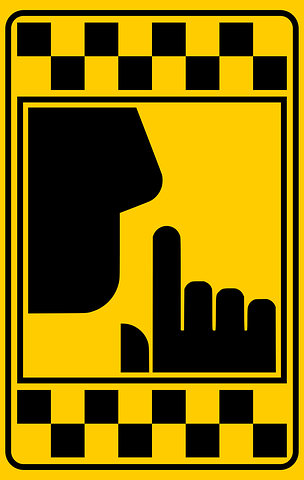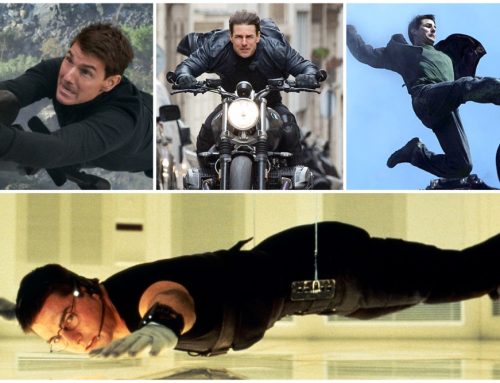After graduation from Harvard Law School, Bryan Stevenson could have worked just about anywhere he choose. Instead of going after big money at a top ten law firm, Bryan decided to move to Alabama and fight for those who couldn’t fight for themselves, specifically those wrongfully accused on death row. One of his first clients was Walter McMillan.
Walter McMillan was a black businessman in Alabama. He had the foresight to borrow money for a saw and a truck and began his own timber business. It didn’t generate a lot of money but it did afford him a degree of independence that many black men in Alabama did not have. Walter was a married to his wife Minnie and had three children. He was a success. But Walter was not perfect. It was well known that Walter had a weakness for the ladies and was romantically involved with several of them one of which was Karen Kelly. Karen was 18 years younger than him, but that wasn’t the most important detail in Alabama in 1986. The fact that Karen Kelly was white got people’s attention. Walter had not done anything legally wrong although in 1986 Alabama still prohibited the practice of interracial marriage.
Because of this, Walter’s name was well-known in the small city that he lived in. So when the police tried to pin a murder on Ralph Meyers, Ralph pinned it on Walter. Even though Ralph had also tried to pin the murder on two other people first, including the new police chief, the sheriff was so desperate to show the town he was on the case that he arrested Walter. Walter reported later that all he heard during the arrest over and over again was, and I will paraphrase for this blog, “n—– this,” “n—– that.”
Ralph Meyers story was that he and Walter were driving around in Walters’ low rider truck when Walter went into the Monroe cleaners, killed Ronda Morrison and then they both fled in the truck. A couple problems with that story:
When Ronda Morrison was murdered Walter McMillan was at a church fish fry. Dozens of witnesses, including a police officer, could confirm his presence.
Walter McMillan did not convert his truck into a low rider until 4 months after the murder of Ronda Morrison and he had the receipts to prove it.
Walter and Ralph had never met. When placed in the same room as Walter, police had to point out who he was to Ralph Meyers.
Later Ralph changed his story and exonerated Walter, but the sheriff still needed his murderer so to pressure Ralph Meyers into keeping his story about Walter, Ralph was placed on death row. After several days on death row, Ralph changed his story back to incriminate Walter so he could get out of there. An all white jury was chosen and the trial against Walter proceeded. It lasted a day and a half. The presiding judge, Robert E. Lee Key, Jr., overruled the jury’s recommendation of a life sentence and imposed the death penalty.
Bryan Stevenson heard about Walter’s case and decided to meet with Walter on death row. This is how Bryan remembers that conversation.
“Mr. Bryan, I know it may not matter to you, but it’s important to me that you know that I’m innocent and didn’t do what they said they did, not no kind of way,” he told me in the meeting room. His voice was level but laced with emotion. I nodded to him. “Sure, of course I understand. When I review the record I’ll have a better sense of what evidence they have, and we can talk about it.” Walter continued. “But look, I’m sure I’m not the first person on death row to tell you that they’re innocent, but I really need you to believe me. My life has been ruined! This lie they put on me is more than I can bear, and if I don’t get help from someone who believes in me-” His lips began to quiver, and he clenched his fists to stop himself from crying. I sat quietly why he forced himself back into composure. “I’m sorry, I know you’ll do everything you can to help me.”
Walter’s story is told in the book Just Mercy, by Bryan Stevenson and I highly recommend it. I hope you read it so I won’t give away the ending. I will say this. Walter McMillan’s story is just about the most unjust story I have ever heard. With one possible exception.
The Ultimate Injustice
Over two thousand years ago, Jesus entered Jerusalem. He received a hero’s welcome. He rode into town on a young donkey. A king would typically ride in on horseback as a show of power, but Jesus chose a donkey as if to say “I come in peace.” Jesus would get very little peace that week. It would be the most difficult of his life. It would be the most difficult week of anyone’s life. By the end of the week Jesus would pray for deliverance and would literally sweat great drops of blood. He was arrested in the middle of the night because his accusers had no hard evidence to accuse him with. Jesus came in peace to save our world and it would cost him his life. We pick up the dialogue in that courtroom in Matthew 26:59
59 The chief priests and the whole Sanhedrin were looking for false evidence against Jesus so that they could put him to death. 60 But they did not find any, though many false witnesses came forward. Finally two came forward 61 and declared, “This fellow said, ‘I am able to destroy the temple of God and rebuild it in three days.’” 62 Then the high priest stood up and said to Jesus, “Are you not going to answer? What is this testimony that these men are bringing against you?” 63 But Jesus remained silent. The high priest said to him, “I charge you under oath by the living God: Tell us if you are the Messiah, the Son of God.” 64 “You have said so,” Jesus replied. “But I say to all of you: From now on you will see the Son of Man sitting at the right hand of the Mighty One and coming on the clouds of heaven.”65 Then the high priest tore his clothes and said, “He has spoken blasphemy! Why do we need any more witnesses? Look, now you have heard the blasphemy.66 What do you think?” “He is worthy of death,” they answered. —Matthew 26:59-65
11 Meanwhile Jesus stood before the governor, and the governor asked him, “Are you the king of the Jews?” “You have said so,” Jesus replied. 12 When he was accused by the chief priests and the elders, he gave no answer.13 Then Pilate asked him, “Don’t you hear the testimony they are bringing against you?” 14 But Jesus made no reply, not even to a single charge—to the great amazement of the governor.– Matthew 27:11-14
The story of Walter McMillan and the trial of Jesus before the Sanhedrin bring a strong emotional reaction because of one factor. Injustice. We hate injustice. As a people we are offended by it. It makes us angry and frustrated. Few situations bring a more extreme reaction.
There is one very notable difference between these two stories: Walter McMillan would tell anyone who would listen about his innocence. He told lawyers and judges and inmates and newspapers. Later in his story, he would do interviews and make television appearances to shout his innocence from the rooftops. He would say it, plead it, scream it.
On the other hand, Jesus said nothing. The high priest stood up and said to Jesus, “Are you not going to answer? But Jesus remained silent. When he was accused by the chief priests and the elders, he gave no answer.Later Jesus was taken to Herod, same response.
8 When Herod saw Jesus, he was greatly pleased, because for a long time he had been wanting to see him. From what he had heard about him, he hoped to see him perform a sign of some sort. 9 He plied him with many questions, but Jesus gave him no answer. –Luke 23:8,9
There were a few moments when Jesus spoke. Short answers. “It is as you say.” “You have said so.” He could have come up with a rock solid defense. He could have killed them on the cross examination. But he didn’t. Didn’t fight for himself. Didn’t plead for mercy. Didn’t scream for an appeal. This is silent Jesus. How could Jesus be silent in the face of that injustice. This was the most unjust trial in the history of mankind. Jesus lived a sinless life and was killed for it. Yet Jesus was silent.
How could Jesus be silent? How could he face such incredible injustice and say nothing? Can you do that? Or do you need to speak to a manager and ask for a supervisor?
Silent Jesus
Today we are going to learn some lessons from silent Jesus. Before we begin, I have a confession to make: Silence is not easy for me. You’re probably not shocked by this. Silence isn’t easy for me especially when I feel like injustice has been done. There is something inside of us that feels the need to stand up against injustice.
There are times when Jesus did that. There are times when Jesus stood up for himself. The reason Jesus stood up against injustice was very different than the reason I stand up against injustice. He did so not to defend himself but to show the people around him what was truly important. I do so most of the time because I am inconvenienced. But here, at the end of Jesus life, when he faced the biggest injustice of all time he said nothing. He was completely innocent. He came down to this world to save and he was beaten and cursed and whipped and struck in the face and he said nothing. The greatest injustice of all time and he remained silent. How is that possible? As we uncover why Jesus remained silent I think we will get some insight into how we can learn from his silence.
Lesson #1: Jesus Had No need to Prove Himself
Jesus didn’t need to prove his value. He didn’t need to prove his importance. He didn’t have to prove that he was right. There is an incredible freedom in not having anything to prove. I have a spiritual mentor who learned this early on in ministry. His mentor told him on a regular basis, “You have nothing to prove and no one to impress.” What would it be like to live in that truth. I want to, but I don’t know if I’m there yet. John Ortberg in his book Everybody’s Normal Until You Get to Know Them, put it like this.
“There are many situations in which I find myself being much more measuring or calculating than I wish I were; situations where I work as hard – and subtly as I can to try and manage what the other person is thinking of me; situations in which I emphasize opinions I think they might agree with, or tell stories that make me sound smarter or stronger or more successful than I really am. I wear too much makeup.”
As I was writing this point about not having anything to prove I looked down to notice that in the morning I had put on my Harvard sweatshirt. I’m sure most of you know that my son is in his first year at law school at Harvard and the reason you know is because I have told you. You may not believe this, but I made up my mind that I wasn’t going to bring this fact up in messages, and to this point I’ve only brought it up once in a message. I also made up my mind that I would not volunteer that information. My tendency would typically be, “Hi, I’m Jack, did you know my son goes to Harvard?” But I promised I wouldn’t do that. So this is what I do. When I tell people about my family I don’t say, “My son goes to Harvard.” I do say “My son goes to law school.” Maybe that sounds noble, but here’s the thing. I know that when I say “my son goes to law school” that any reasonable person will ask this follow up question, “What law school does he go to.” When they ask I say “Thank you so much for asking. He goes to Harvard.”
Those are the stories we want to tell. Stories of success and stories of achievement. We hide our dysfunction and our hurt and pain. When we are asked what our weaknesses are we say things like “I work too hard. I care too much. I am too focused on excellence.” We need to prove ourselves. So how does this apply to injustice?
Often the injustice we fight are simply opinions that other people have of us. They don’t understand me. I wasn’t angry. I didn’t mean that when I said that. He thinks I’m the problem?; He’s the problem. Is it possible that all this fighting against injustice is really fighting to prove ourselves? Fighting to prove we are valuable. Arguing to prove that our opinion matters.
Jesus never had to do that. He simply rested in what His Father thought of Him. So when He faced these unjust accusations He didn’t need to fight back because He knew His Dad loved Him.
How much trouble do we get in because we have to prove ourselves? We need to make sure everyone knows we are right. That our opinion matters. I don’t know if you’ve considered this, but God calls us his adopted children. Therefore, he loves us like his own sons and daughters. God loves us as much as he loved Jesus. That means we have no one to impress and nothing to prove.
Lesson #2: Jesus Had No Need for the Last Word
Dallas Willard is considered one of the greatest Christian thinkers of our day and yet in one of his classes a student challenged him with statements that were both offensive and incorrect. Dallas paused and told the class that that was a good place to end their discussion. Somebody asked Dallas afterward why he had not countered the students’ argument and put him in his place. “I’m practicing the discipline of not having to have the last word.”
How important is it for you to have the last word? When in an argument with your spouse? When talking to your kids? When you’re in a meeting at work? Do you have to have the last word or can you remain silent? Jesus had no such need.
Lesson #3: Jesus Knew When a Battle was Worth Fighting
The reality was, in this case, Jesus could have come up with all kinds of proofs and witnesses and a brilliant cross examination and an amazing closing statement and it wouldn’t have done him any good. He was thrown into a kangaroo court with false witnesses and a corrupt jury and all the arguing in the world would not have made a difference.
Seems to me like a lot of Christians need to learn the practice of silence in this area. There are all kinds of battles we wage on Facebook and Twitter and the reality is we aren’t going to win a debate against the world because quite frankly most of the world has tuned us out. Let’s get back to Dallas Willard for a second:
Dallas would never debate non-believers. He would engage in a mutual conversation where both parties could seek for truth together. He would often say: “I’m sure Jesus is the kind of person who would be the first to say you must ruthlessly follow the truth wherever it leads.” He tried to engage non-believers rather than trying to win arguments.
If it was important, Jesus would debate it. If he knew it would lead nowhere, Jesus remained silent. We have to decide what is worth fighting for. It is my belief that we need to fight strongly to re-establish the reputation of Jesus for love and compassion and stop fighting to prove that as Christians we are right.
I think these first three are great lessons from the silence of Jesus but they all pale in comparison to number 4. The real reason why Jesus remained silent is because
Lesson #4: The Unjust Treatment of Jesus Bought our Justice
Jesus didn’t remain silent through injustice so he could save you from all of the injustice you go through. I’m sure he doesn’t like it when you face injustice, but that’s not why he faced injustice. Jesus remained silent through all of that injustice because of all the horrible injustices you and I have put people through our whole lives.
- The injustice of yelling at a small child that can’t defend himself
- The injustice of talking behind someone’s back that can’t tell their side of the story
- The injustice of subjecting the people in our lives to our dysfunction.
- The injustice of infidelity and alcohol and rage and pride.
Throughout our life we have subjected people to injustice. We have treated people in ways they don’t deserve. The only way Jesus could free us from the guilt of that injustice is to face the ultimate injustice. Live a sinless life and face the ultimate penalty and do it in silence. Something to think about this Good Friday.









Leave A Comment